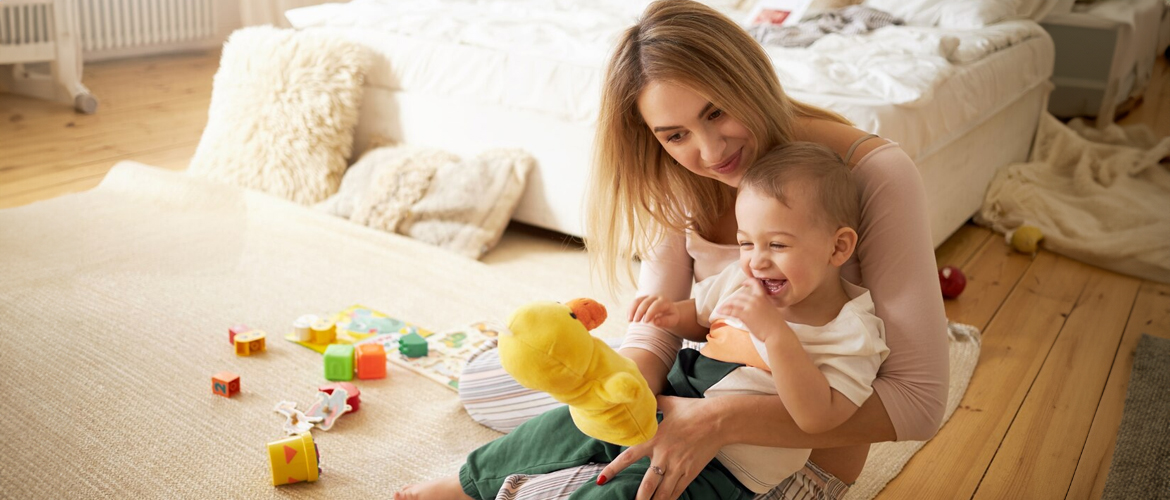Just think over the fascination that can be observed in a baby’s smile, small fingers and toes, and the language they use. Isn’t it an interesting thing to do? An increasing number of teenagers and young adults have taken up babysitting as a part-time job in the recent past. Whether you are new to babysitting or want to add more options to your experience, here are 20 useful pieces of advice that will help you turn an ordinary babysitting job into a unique adventure.
20 Helpful Babysitting Tips for Beginners
1. Safety First
2. Communication is Key
Maintain open communication with parents when caring for children, discussing expectations before dropping them, to ensure understanding and appropriate handling in all situations.
3. Get to Know the Kids
Before handling a baby, ensure you understand the care process, including nappies and choking risks. Consult mothers about child-proofed areas for play. Spend time bonding with children, showing interest in their activities, and maintaining good communication to build trust.
4. Establish Boundaries

Children test limits during growth stages, which helps teach self-discipline and societal boundaries. It’s essential to follow the principles set by parents, even if they don’t agree with them, as they are necessary and may not apply everywhere. However, there are times when it’s okay to break some boundaries.
5. Stay Engaged
The policy should include inclusive activities for disabled children, such as walking in a park, bringing favorite toys, and limiting games and electronic devices. These activities should be tailored to the child’s activities and abilities, promoting engagement without segregation.
6. Mealtime

Discuss meal preferences and any dietary restrictions with the parents in advance. Ensure the child’s food is cut into bite-sized pieces to prevent choking hazards. Make mealtime enjoyable by involving them in simple food preparation tasks or discussing their favorite foods. Supervise mealtime to prevent any accidents and ensure the child is eating properly. Help tidy up after meals to leave the kitchen for the parents’ return.
7. Routine Matters
When babysitting, it’s crucial to acknowledge that every household operates on its unique schedule and routines. Upon arrival at the family’s home, it’s important to proactively request the parents to outline their customary schedule. Adhering to the family’s schedule fosters a sense of comfort and familiarity for the children, ensuring a smoother babysitting experience.
8. Stay Organized
Maintain individual day planners that outline daily schedules including meal times, nap schedules, and designated play times. Additionally, it’s important to specify the types of baby foods planned for each meal. Establishing a clear agenda for the child’s day helps minimize potential chaos. Furthermore, it’s advisable to inquire about any permitted visits from friends and request their names in advance.
9. Document Everything

Ensure consistency during your babysitting session by keeping track of your undertakings, meals, and incidents of note, among many others. It will also help give the parents something to refer to when they have been away from the baby for quite some time. Jot down when you feed the child, the hours when he/she takes naps as well as any other significant achievements/milestones. Recording such incidences as bumps or falls will help you update the parents correctly on what happened while they were away. Track phone calls, visitors, and any strange incidents using a logbook.
10. Be Prepared for Anything
Being extremely careful and thorough in preparing for a likelihood of strangeness or emergency is crucial. Have with you all the time, even on your mobile a phone book that must be present, containing the fire brigade contact numbers technology. Most importantly learn about any relevant allergies, any food allergies, pollen, or animal skin rashes that affect the kid together with the first aid measures for allergic reactions.
11. Stay Calm Under Pressure

Taking care of kids requires one to be calm and quick-witted. If you find yourself in a tight spot, such as a wailing baby or an unexpected occurrence, stay calm as this helps reassure both the affected child as well as their parents. Always avoid situations that may breed panic since they always get worse. In this perspective, it is important that even as children tend to behave oddly at times, keeping quiet tends to promote positive behavior by serving as a model for dealing with heated situations.
Also Read: 4 Easy Workplace Exercises!
12. Stay Positive
It is important to have a positive attitude whenever you are a babysitter if all you find there are parents who are worried about some actions. I must make them know that I see things from their side and will never do the same again. While babysitting, play with the playful energy of children and be happy in their curiosity and purity. Always remember to have rest especially when you are exhausted with some nice moments of creating bonds through happy memories saying that this place must feel nice for everyone here laughter etc… in front of any client whom you meet.”
13. Establish Trust
Like putting one’s life in someone’s hands, parents and guardians place their faith in the babysitter when they are out working or doing other things. It is quite a big responsibility but it has its rewards. The fact that one is always on time, reliable, and shows all signs of concern for children’s welfare while babysitting ensures that their parents can trust them wholly.
14. Safety Checks
Safety checks like babysitting include checking out the environment for potential hazards such as sharp objects, things that could choke a child, and even electrical outlets; making sure furniture is stable and secured; keeping toxic substances out of reach; and ensuring doors and windows are always locked so that the kid will never be found outside during improper hours. Regular supervision over what the child is doing combined with immediate measures whenever something unexpected happens further strengthens the security during babysitting duty.
15: Listen Actively
Active Listening holds paramount importance when one is nurturing a baby as it enables easy communication and guarantees that the child is listened to and well-comprehended. For instance, through the act of nodding, maintaining a direct gaze, or responding to them accordingly based on various stimuli. Sitting back on a chair while acknowledging what has been said, in addition to prompting for more talk can be some of its examples. This will enable you to perceive their needs and feelings correctly based on certain signs because there are times when voice tone alone cannot tell us how the other person is feeling about something; we can interpret from body language all messages being sent out by them even if none are spoken at all so pay attention always. This will make sure that you create an atmosphere that offers encouragement where in the presence of attentive listeners, the child feels that he or she has been taken into consideration to come up with an answer.
16. Reflect and Improve
“After each babysitting job, I think about what was good and what could have been better. You will be a better babysitter as you keep on improving your skills. Every opportunity gives you a chance to understand your child’s actions, be a communication guru, or even solve problems. Good babysitters look back at the day’s encounter and think if only they had done certain things differently thereby improving on them.”
17. Set Realistic Expectations
Babysitting experiences aren’t usually perfect—so brace yourself for anything. Realism is essential in babysitting to ensure workability. Supplemental activities should be child-oriented keeping in mind what suits him or her depending on one’s temperament or age. Exercise caution concerning his/her behavior—he could be the spoiled brat or lovely little angel. So plan for activities that are right for their age and energy status, yet things do not always turn out as projected when carrying out this task.
18. Know When to Ask for Help
In occasions of unknownness or doubt, it is necessary to consult parents or call 999; when the situation concerns children and their medical urgent matters an early behavior change is advised. Due regard for the well-being of young ones matters immensely so one should always be careful enough to ensure that they remain fine.
19. Respect Privacy
Maintain family privacy by not sharing too private details or sharing children’s photos without consent. Allow children personal space, fostering healthy boundaries and a positive environment, without justifying the violation.
20. Be a Role Model

Show young children good manners, kindness, and patience as both attendants and teachers. Involve them in activities to enhance learning skills, creativity, and healthy living habits, showing responsibility and preventing negative behavior.
The Takeaway
Follow these 20 essential guidelines for a secure and nurturing environment while babysitting. Let’s aim for a joyful babysitting adventure!
Leia
Related posts
Women Tips
Privacy Overview
| Cookie | Duration | Description |
|---|---|---|
| cookielawinfo-checkbox-analytics | 11 months | This cookie is set by GDPR Cookie Consent plugin. The cookie is used to store the user consent for the cookies in the category "Analytics". |
| cookielawinfo-checkbox-functional | 11 months | The cookie is set by GDPR cookie consent to record the user consent for the cookies in the category "Functional". |
| cookielawinfo-checkbox-necessary | 11 months | This cookie is set by GDPR Cookie Consent plugin. The cookies is used to store the user consent for the cookies in the category "Necessary". |
| cookielawinfo-checkbox-others | 11 months | This cookie is set by GDPR Cookie Consent plugin. The cookie is used to store the user consent for the cookies in the category "Other. |
| cookielawinfo-checkbox-performance | 11 months | This cookie is set by GDPR Cookie Consent plugin. The cookie is used to store the user consent for the cookies in the category "Performance". |
| viewed_cookie_policy | 11 months | The cookie is set by the GDPR Cookie Consent plugin and is used to store whether or not user has consented to the use of cookies. It does not store any personal data. |

